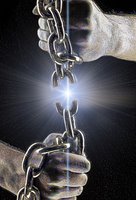
I was listening to local radio talk show host Charles Adler yesterday afternoon and the hot topic was forgiveness. The discussion arose as a result of the recent tragic event within the Amish community and the widely publicized decision they have made to forgive the now dead murderer of their children. The discussion was excellent and two guests shared some incredible insights into the freedom that is gained by the forgiver in making the choice not to remain bitter and angry. Eventually a caller came on the line and said that he thought it was all complete drivel, that forgiveness was not possible unless there was repentance and restitution offered by the offender. This is an idea I have heard expressed many times over the years I have been in ministry and it illuminates a basic misunderstanding of how we are to direct our lives.
First of all I want to address the idea that Jesus does not expect us to forgive others unless they repent of their wrongdoing. Mathew 6:14-15, Matthew 18:21-35, Mark 11:25, and many more clearly state that we are to forgive others and there is no mention whatsoever of them having to seek that forgiveness first. Look at these words of Jesus in Matthew 5:43-45:
"You have heard that it was said, 'Love your neighbor and hate your enemy.' But I tell you: Love your enemies and pray for those who persecute you, that you may be sons of your Father in heaven.
Notice that we are not to withhold our love until our enemies are sorry and become friends.
In Matthew 7:2 we are essentially told that the way we dish it out is the way it will come back to us from the Father. How do you want to be forgiven? Only for the offenses you are aware of and repentant for, or do you want complete and total release from all guilt - even of offenses you are unaware you have committed or that you did not think were wrong at the time.
That brings about the big question - How exactly does one do that? How do we forgive someone who is not sorry or who acknowledges no wrongdoing? How does a father forgive his sons murderer? How does the abuse victim forgive the abuser?
A couple of things need to be understood.
1. Forgiveness does not necessarily mean restoration of relationship.
2. Forgiveness is an act of the will, not the emotions.
If you are under the impression that in order to forgive someone there will have to be full reconciliation of relationship then you are not going to be able to do it, nor should you. For an abuse victim to send the message that what was done was okay is unconscionable. To forgive in this instance is to say, I forgive, I refuse to give that person any further power in my life. I release all anger and bitterness toward them and I pray that God brings them to a place of repentance and that they get help for the problem that lead them to do what they did. End of story, end of association. If the offense was criminal then any effort that can be made should be made to prevent the offender from victimizing anyone else.
Most people understand the idea of letting your will set the direction for your life rather than your emotions. We all do it in some areas of life. For some reason, however, in forgiveness and often in relationships we think we should follow the direction of our emotions rather than the will. Allow me to illustrate.
We wake up on Monday morning and we don't feel like going to work. Our emotions are telling us to roll over and go back to sleep, we override those emotions with our will, which has determined that we want to keep on living in the house we are buying, and driving the car etc. The will sets the direction for life. We start a diet or exercise program. Our will is to be thin and healthy and to live a long and active life. Our emotions fight this every step of the way. We feel like eating junk food and sitting around watching TV, even though we know that the end result of that behavior is poor health and likely premature death. To the degree that we allow our emotions to set the direction in our lives we suffer unnecessarily.
So to forgive by the will, a decision must be made! Write it down if it helps.
"As of October 6, 2006, I forgive (fill in the blank)."
Now when you wake up tomorrow you will still feel the same feelings of anger and resentment you always have. Instead of dwelling on those emotions declare to yourself (out loud if no one is around), "No, I refuse to think and feel that way, I forgave that on Oct. 6" Repeat this exercise as often as it takes. Eventually your emotions will catch up to the direction that you set with your will - and you will be free!
